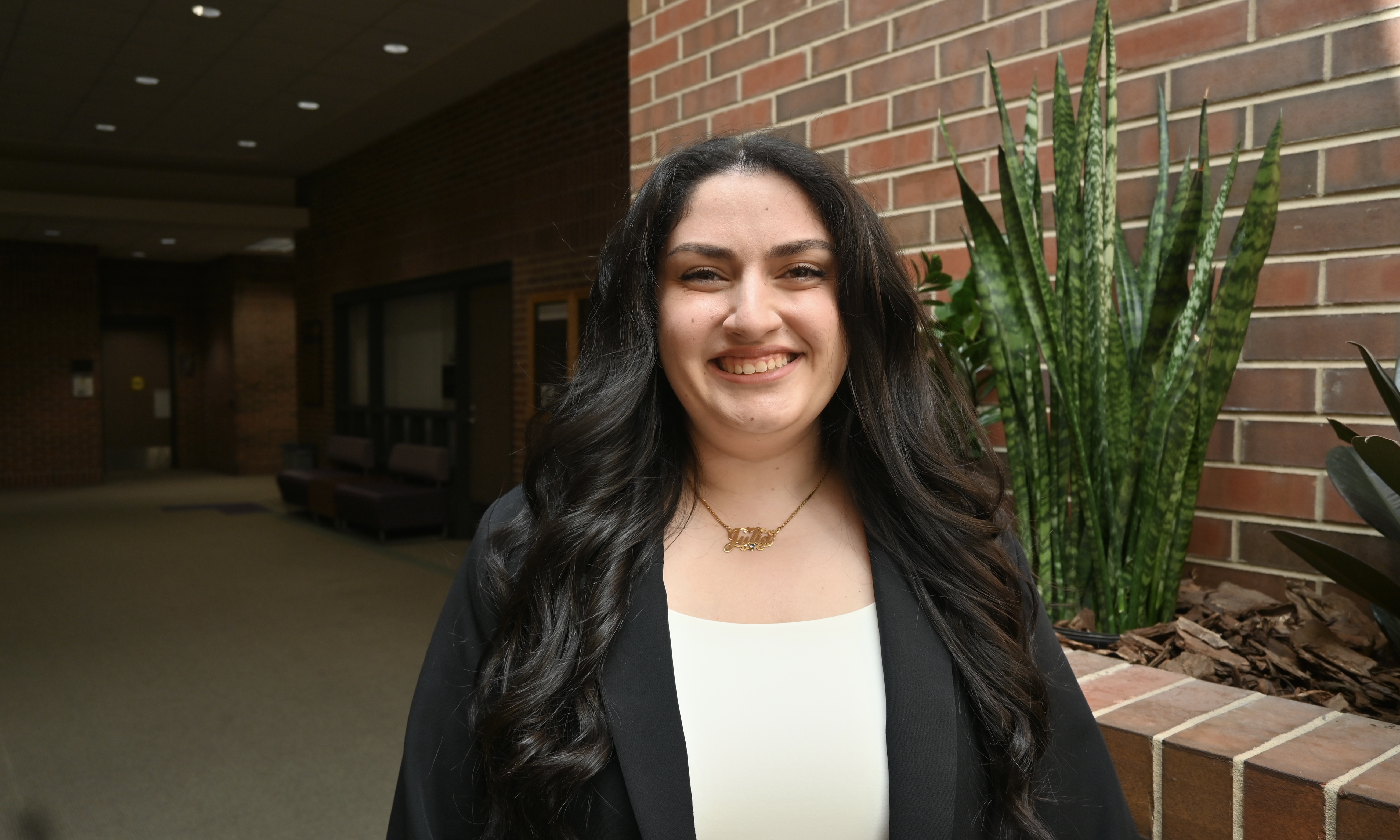Julia Alexander and Deirdre Kerins, both recent MSU College of Law graduates, were named two of the 130 dedicated Justice Fellows of the Immigrant Justice Corps, a national fellowship that equips lawyers with the resources needed to help immigrants in need. Below, both share their experiences.
Julia Alexander
I chose to attend law school with one goal in mind: to help those in need seek the justice they deserve. It means so much to me to be chosen as an Immigrant Justice Corps fellow – an honor that is deeply personal and significant to me.
As a child of immigrants, I have seen firsthand the discrimination and injustice that immigrant communities can face in this country. In fact, it was one of the driving factors for why I decided to go to law school. I knew I wanted to make an impact and serve the communities that needed help the most.
I have always had an interest in advocacy and social justice. Prior to law school, I worked on voter engagement as a grassroots organizer. While in law school, I made sure to take on as many opportunities as I could that would prepare me to work in the public interest sector.
My journey through law school and various public interest positions has prepared me for this role, and I am immensely grateful for the opportunities I’ve had along the way.
During my time in law school, I held several student positions, including being the Diversity, Equity, and Inclusion Chair for our Student Bar Association, being an Articles Editor on MSU’s International Law Review, and working as a student clinician in the MSU Law Immigration Clinic. These experiences at the MSU College of Law provided me with the skills and leverage I needed in the various clerking positions I held throughout law school.
For the summer following my first year of law school, I worked as a law clerk for Michigan Immigrant Rights Center. In this position, I worked with the Michigan Crime Victims Legal Assistance Project. This experience helped me understand the disparities faced by immigrant communities, especially those impacted by domestic violence and other crimes. I knew that I had the motivation, capacity, and empathy to work with these communities, and I wanted to put in the work to make a difference.
I also worked as a law clerk at Legal Services of South Central Michigan working on housing cases, and with Lakeshore Legal Aid working in the family law sector. Both of these positions reinforced my passion for working in public interest as well as my understanding of how to work with people of different backgrounds.
Now, as an IJC Fellow, not only do I get the opportunity to work in immigration law and assist immigrant communities in my home state of Michigan, but I get additional resources, training, support, and a network of like-minded individuals across the country who are doing the same work as me.
I have been with Immigrant Justice Corps for about one week, and I can already tell the positive impact this fellowship will have on my career.
One of the most exciting aspects of this fellowship is the national network of fellows. I’ll be able to collaborate with like-minded individuals, seeking advice, sharing experiences, and exploring various opportunities in immigration law. I look forward to building these relationships and learning from others who share my passion for helping immigrant communities.
For these next two years, I will be at the Michigan Immigrant Rights Center as an IJC Fellow working as a staff attorney with the Unaccompanied Children’s Program. I’m looking forward to working on Special Immigrant Juvenile cases and learning a new area of immigration law, but I’m especially looking forward to working at MIRC where my passion for immigration law began.
Looking ahead, my ultimate career aspiration is to use my legal skills to help immigrants, particularly victims of abuse and domestic violence, regain their power and establish a sense of security in this country. I am deeply passionate about public interest law, and every opportunity to advocate for justice makes this work meaningful.
In the future, I see myself continuing to expand my impact—whether through direct client representation or systemic advocacy. I also hope to work in higher education, inspiring future lawyers to get involved in these vital areas of law.
The IJC Fellowship is a pivotal step in my legal journey, and I am excited for what lies ahead.
Deirdre Kerins
I am humbled and honored to be a part of the 2024 Immigrant Justice Corps fellowship cohort. There are so many incredible IJC fellows who are working on the front lines to advocate for a fair and just immigration system, and I am excited to learn from their experiences and ongoing work.
I entered law school with several years of experience as an immigration paralegal, and I knew that I wanted to pursue a career in immigration law. I chose Michigan State University College of Law because of the national reputation of its Immigration Law Clinic. It was important to me to get practical, hands-on experience as a student attorney.
Professors of Law Veronica Thronson and Marie Nelson facilitated a great environment that allowed me to take ownership of my cases, working with actual clients. Sometimes I had to make hard decisions regarding the viability of a case. The clinic helped me gain confidence conducting client meetings and doing case filings.
But nothing is more gratifying than helping clients win asylum. One case that stands out for me is an asylum application made by a doctor who fled Cuba for fear of reprisal for speaking out against the exploitation and forced labor of government-sponsored “medical missions” abroad. This was an interesting case to research and build, and I enjoyed working with this brave and courageous client to build a strong asylum case.
In addition, I took Immigration Law with Professor David Thronson and Immigration Consequences of Crime with Professor Joanna Kloet. These classes provided me with a solid foundation of immigration law. We also explored the political and societal forces that shaped our current immigration system today.
I hope to continue working in immigration law, ideally with an organization aimed at combating and prosecuting human trafficking networks. I will also be working with unaccompanied minors applying for asylum and permanent residence.
The IJC fellowship will provide me with an opportunity to gain experience in the court room and learn from mentors in the field.

